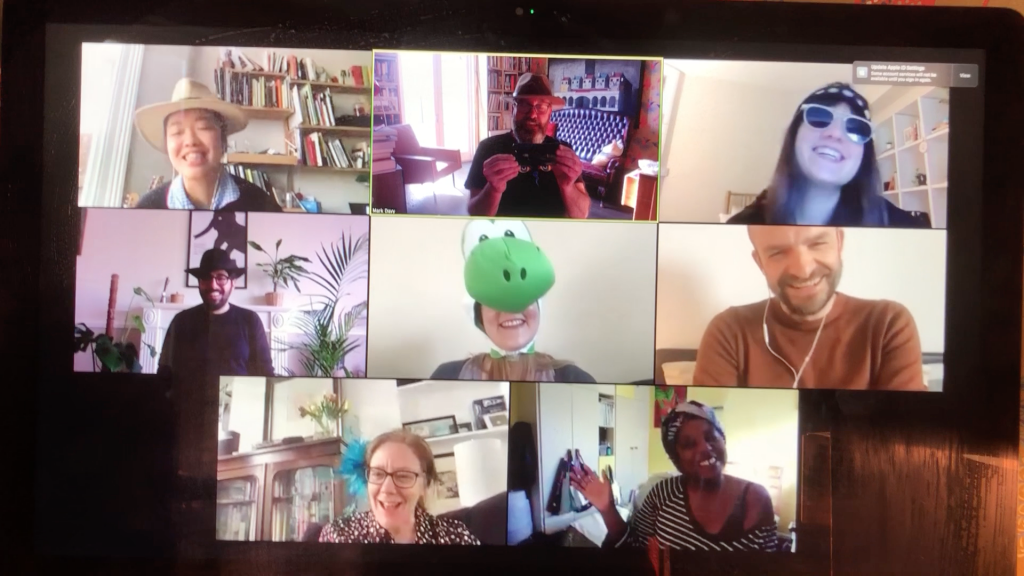Is an office revolution imminent?
Very possibly. As many companies now look to working from home to keep their businesses going during the COVID-19 pandemic, there are many theories circulating about the future of this method as a permanent feature in unexpected workplaces as they have needed to create new, more creative avenues for working and staying connected constantly.
A major positive of working from home is the shift in work/life balance. Saving time on commuting means more family time, more housework and life admin gets done and, when not in lockdown, a chance to have more sociable evening time. For those of us lucky enough to have an outside space, the scenery certainly trumps a view of an office whiteboard or shelving unit. Plus, getting a boost of vitamin D increases wellbeing which, in turn, increases productivity. Win, win.
Other benefits for businesses include a surge of innovation and exploration (with more time comes creativity), an improvement in the team’s technical ability as they all get to grips with Zoom, Slack, Dropbox, etc. and a boost in morale and efficiency with employees feeling less stressed and more engaged with the company. For jobseekers, a company with a flexible working package including home working is highly sought after – 81% of people believe that flexible working would make a job more attractive to them (Source: PowWowNow – https://www.powwownow.co.uk/smarter-working/flexible-working-in-2019/). There is also a potential increase in diversity with home working allowing people of differing physical or mental capabilities to consider roles previously requiring an office presence on a full-time basis. A bigger number of the workforce working from home also saves companies money – a reduction in travel allowances and cost savings of having smaller offices with fewer pieces of equipment needed for hotdesking.
Then there is the environmental impact – the current UK lockdown has seen some cities with a 60% reduction in Nitrogen Dioxide (NO2) levels as people are staying at home rather than commuting. (Source:Defra) If everyone worked from home at least 1 day a week when they didn’t previously, this will have a significant positive impact of air quality.
Naturally, there are some challenges. Too much working from home can cause a feeling of disengagement and loneliness, particularly in those who live alone, so the balance with days physically meeting others need to be considered. Poor technology channels can also hinder a productive working day. For some businesses forced into this way of working with the government measures, they will have found themselves ill-equipped to adapt with a lack of pre-planned policies and procedures.
To make this work in the long term, preparation and communication are key. All policies, procedures and practices including the health, safety and wellbeing of employees need to be carefully considered and well communicated. IT and infrastructure should be well-thought. A culture of trust and strong leadership must already exist in the organisation, but it can work and work very, very well. Advantages can range from home-working with skeleton teams in the office on a rota; virtual group lunches; client meetings by video conference rather than a physical presence cutting down on travel time; pollution reduction; and costs. While once we needed to plan how and when we would could enact these practices, our forced experimentation has demonstrated what is possible and most aspects are most beneficial.
The longer this goes on, the more we adapt to it. I suspect many will not want to return to the daily commute and the distractions of an open plan office every day. So perhaps employees will now want a shake-up of the way they work. With cost savings, productivity increases and a greater attractiveness to potential candidates, businesses may even lead this conversation with their teams.
Is this reactive change going to live up to the claim of the ‘new normal’? Or will this current way of working be forgotten about once offices re-open their doors again? I, for one, hope that a revolution comes….and with the rise in request of ‘Virtual Office Addresses’, there is indication that we are already in it.
-Anna Pearson, HR Manager

Image credits: Pipilotti Rist, Open My Glade (Flatten) (2017). Courtesy of Times Square Arts. @TSqArts
